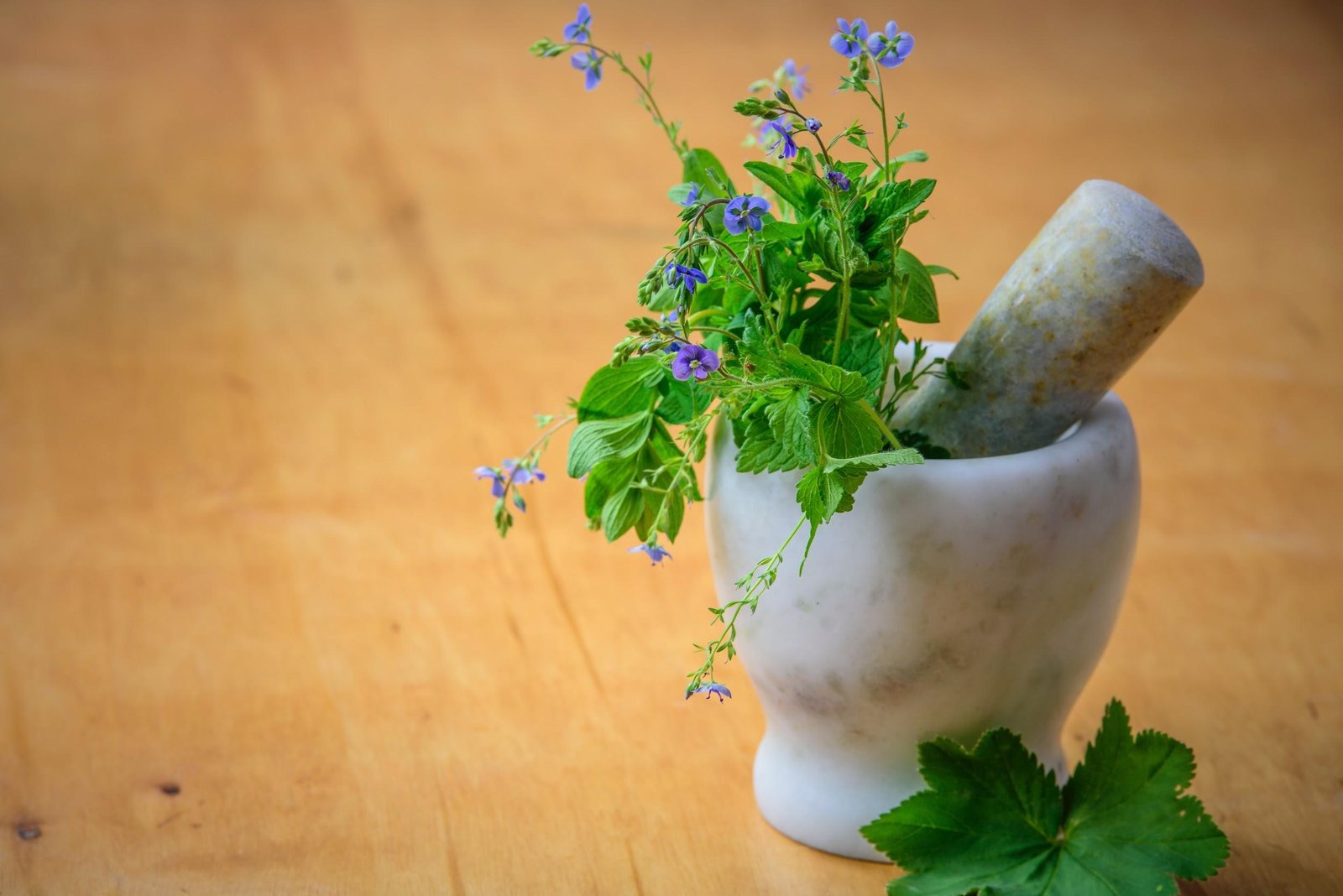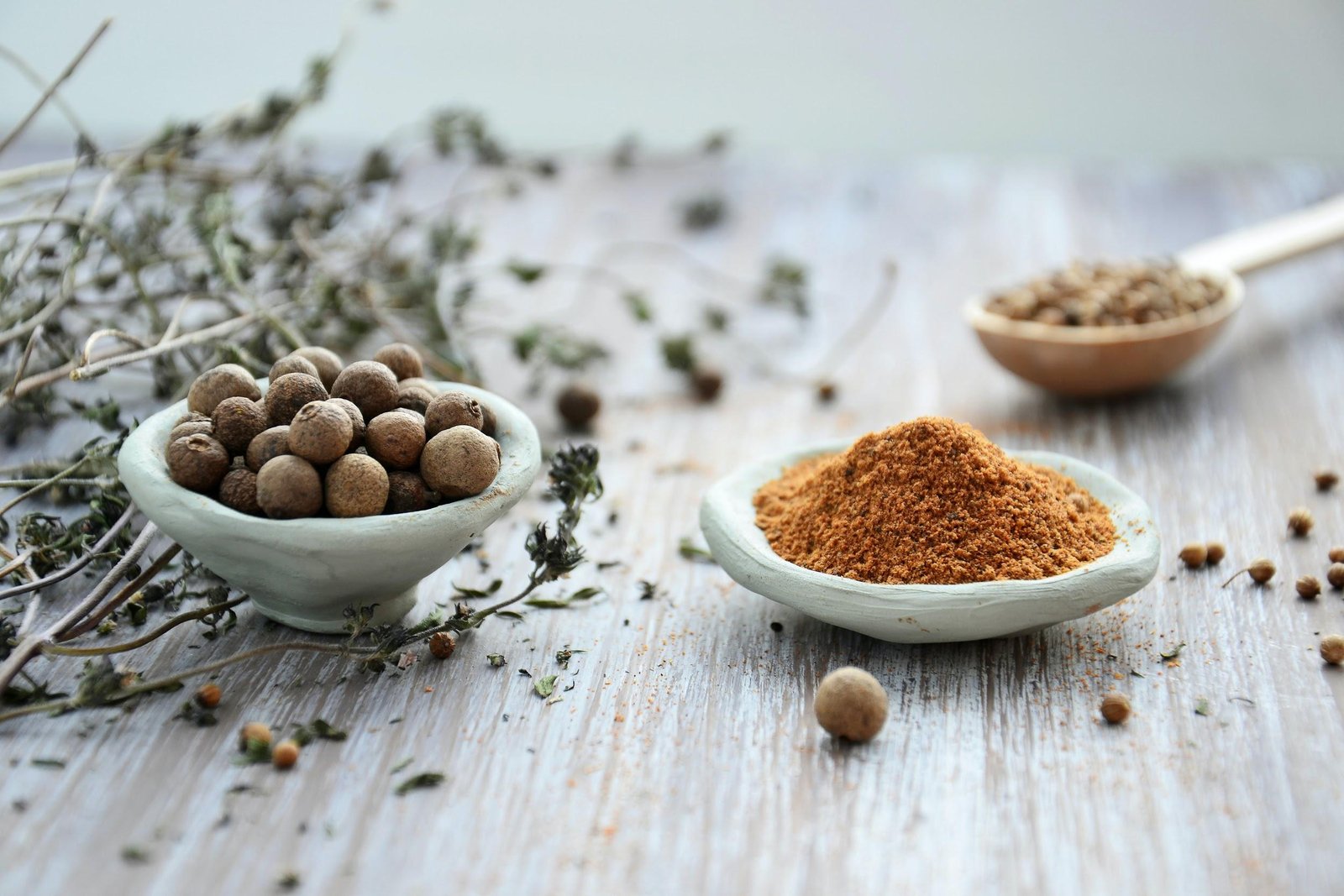7 Spices and Herbs With Anti-Inflammatory Properties

Inflammation is the body’s basic protective mechanism against wounds, infections, and other types of harm. Unfortunately, inflammation itself can be dangerous in some cases. For instance, lots of health conditions can cause inflammation to remain elevated, which may lead to tissue damage. There are plenty of drugs with anti-inflammatory properties that are aimed to reduce or eliminate inflammation. However, these remedies may not be always effective, besides, they often have negative effects. That’s why we have covered 7 spices and herbs with anti-inflammatory properties.
Some herbs and spices have been acknowledged for their anti-inflammatory properties, they come with a variety of total-body benefits and can reduce chronic inflammation and pain. That’s because herbs and spices are rich in phytochemicals, which are healthful plant chemicals.
In fact, no snack or meal should go without these flavorful components. Dieticians recommend cooking with herbs and spices regularly since they not only make food tastier but also improve our health.
Choose Spices and Herbs With Anti-Inflammatory Properties
The market is offering some anti-inflammatory herbs and spices in the form of supplements, e.g., capsules of cinnamon extract, or oregano oil. However, It’s always better to eat natural herbs and spices instead of taking supplements. Unfortunately, there are just a few regulations and government oversight on supplements. Therefore, capsules might not have something they claim to, or they might have harmful additives.
Besides, food is a powerful army – all compounds of organic food we are consuming, provide health benefits. You never know if you get the same effect from taking supplements.
So, let’s take a closer look at the most effective, natural anti-inflammatory medicine – herbs and spices.
1.Turmeric
Turmeric is one of the best-known anti-inflammatory spices, and for good reason. It typically comes in the form of a yellow powder derived from the root of a turmeric plant. The turmeric plant features powerful antioxidant properties and has been used for centuries in India as a culinary and therapeutic ingredient. It contains a unique compound called curcumin that helps promote a healthy response to inflammation.
Studies have shown that curcumin improves inflammation in conditions such as rheumatoid arthritis, it reduces stiffness and joint swelling. Turmeric is also known for helping prevent inflammatory bowel disease.
How to use: Turmeric powder can be used as a natural dye in baked goods, it’ll add an earthy, robust flavor and cheery hue.
2.Cumin
Cumin is another great spice with antiseptic and anti-inflammatory properties. If you suffer from inflammation that triggers other health conditions, including cumin in your diet might counter the effects. Lab studies performed on rats have shown that cumin seeds can reduce pain. Besides, this flavorful ingredient may help treat diarrhea, control blood sugar, has anti-cancer properties, fights bacteria and parasites, aids in weight loss, boosts memory, and more.
How to use: Cumin can be used both as whole seeds or ground, it features an amazing nutty flavor. Cumin is an important ingredient in spice blends and curry powder; it’s perfect for savory recipes like chili, meat, fish, stews, and vegetables.
3.Ginger
Lots of people consider ginger a super root, and lab studies show that it really provides numerous health benefits. Ginger is available in many forms, we can buy a root itself, ginger tea, powder, or various edible options. This product can boast anti-inflammatory effects and has strong antioxidant properties. On top of that, ginger is good for your digestive system and capable of reducing pain as over-the-counter painkillers.
How to use: The spicy, mildly sweet ginger can be consumed both fresh and dried. It’s often used to add zip to Asian-inspired meals.

4.Rosemary
Rosemary is one of the best anti-inflammatory herbs. Its compounds carnosol and carbonic acid are known to be effective for reducing inflammation in the stomach and bowel. On top of that, recent research has shown that rosemary can potentially prevent tumors in the colon.
This herb is also good for people with rheumatic diseases as it decreases inflammation and relieves pain. However, one should be careful with large doses since like any other anti-inflammatory herbs and spices large concentrations of rosemary can act as a blood thinner.
How to use: As a popular cooking herb, rosemary is easy to introduce to any diet and routine. It pairs well with earthy flavors, e.g., classic roast potatoes.
5.Chilli Peppers
Chilli peppers contain capsaicin which improves inflammation and reduces pain. Although research on this compound is still ongoing, the initial results are very promising. Aside from anti-inflammatory effects, chilli peppers improve metabolism, support cardiovascular and digestive health, fight colds and fungal infections, and even reduce risks of cancer. However, we should be careful not to eat too many chilli peppers in any form since in excess it can lead to stomach issues.
How to use: If you like spicy foods, chilli peppers will be a great addition to any meal. Dried and ground chilli can be added to chutneys and salsas.
6.Thyme
Thyme is one of the most crowd-pleasing, comfort herbs with anti-inflammatory properties. This herb is packed with vitamin A and also is a great source of vitamin C. Hence if you catch a cold, thyme can get you back in good health. Furthermore, it contains fibre, copper, manganese, and iron which are also necessary elements for maintaining good health.
How to use: Thyme is used in savory meals like roasted or braised meat, fish, vegetables, as well as in savory baking. It also adds depth and flavor to soups, marinades, and stocks. Actually, any dish can benefit from this hearty herb.
7.Black Pepper
Black pepper is a King of Spices, which is highly valued for its anti-inflammatory, antibacterial, and antioxidant properties. Research has shown that the main black pepper’s chemical compound piperine is effective in the early acute inflammatory process. Moreover, black pepper may help control blood sugar, improve cholesterol levels, support brain and gut health.
How to use: Black pepper is salt’s best buddy and its beneficial properties round out any meal’s flavor. More than that, pairing turmeric and black pepper increase curcumin absorption, hence anti-inflammatory effects.
Summary
Lab studies have shown that turmeric, cinnamon, ginger, rosemary, chili peppers, thyme, and black pepper have anti-inflammatory properties and are ultimately beneficial for overall health. Besides, all these herbs and spices make meals much more delicious and flavorful. So, why not incorporate some of them into your diet?
What are your favorite herbs and spices? What meals do you add them to? Share your experience with us in the comment section!
Author’s bio:
Thomas Nemel is a blogger in a health & fitness niche. He loves writing as well as cars and exercising. Thomas enjoys helping people to improve their diet and nutrition and make the right lifestyle choices.
